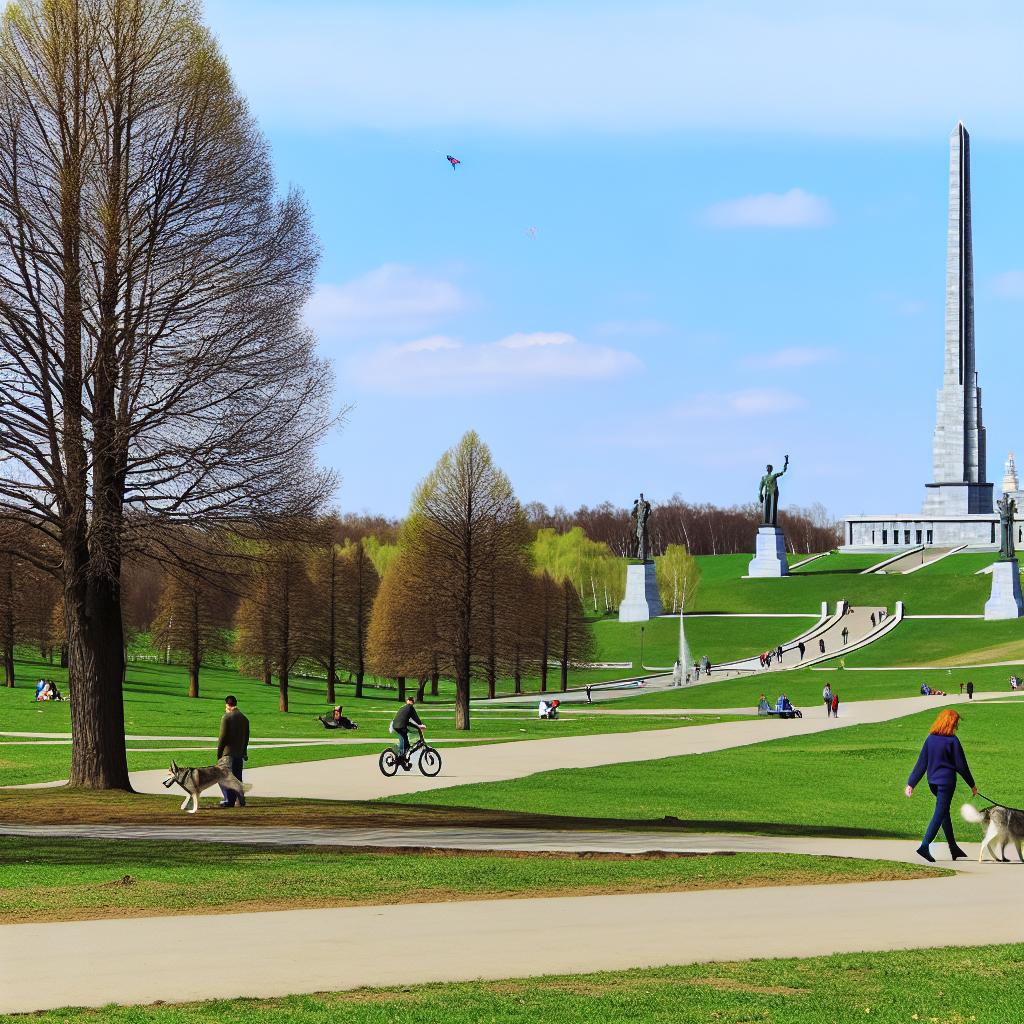Overview of Victory Park (Poklonnaya Hill)
Victory Park, an iconic landmark, holds a special place in Russia’s vast historical landscape. Nestled in Moscow, it epitomizes the Soviet triumph over Nazi Germany during World War II. Occupying a strategic position on Poklonnaya Hill, the park has witnessed pivotal moments in history, offering a window into Russia’s past and military prowess during key events.
History and Significance
The inception of Victory Park dates back to 1958, though its full realization came in the latter part of the 20th century. May 9, 1995, marks its official inauguration, coinciding with the 50th anniversary of the conclusion of the Great Patriotic War, known globally as World War II. Choosing Poklonnaya Hill for the park’s site was deliberate; this location had previously served as a lookout for Napoleon as he gazed upon Moscow after his partial conquest in 1812.
While construction spanned several decades, the location’s strategic elevation and historical ties ensured that Victory Park would serve as a lasting tribute to resilience and victory. Beyond its military history, Poklonnaya Hill also connects to older traditions, having been a site where travelers would bow upon nearing Moscow, recognizing the city’s influence and grandeur.
Main Attractions
At the heart of Victory Park is the Museum of the Great Patriotic War, an extensive complex offering a deep dive into the Soviet experience of World War II. The museum serves both as an educational platform and a solemn reminder of the sacrifices made. It houses numerous artifacts, personal stories, and exhibits that bring the realities of war to life. The museum’s design is both imposing and intricate, reflecting the gravity of its subject matter.
Nearby, the Triumphal Arch stands proudly as a monument to Russia’s earlier notable military achievement against Napoleon. Constructed originally in the 19th century, it has seen restoration and now harmonizes with the park’s broader narrative of military history, serving as a visual testament to Russian endurance over time.
Central to the park’s layout is the Victory Monument, an imposing obelisk reaching a height of 141.8 meters, symbolizing each day of the Great Patriotic War. The structure is adorned with intricate bronze sculptures that tell stories of battle and bravery, creating a focal point for reflection and admiration. Its design is not just a commemoration of past glories but also an encouragement for future generations to appreciate peace and unity.
Additional Features
Victory Park extends beyond its main monuments, offering an expansive area laden with smaller, yet no less significant, features. The Alley of War Heroes, populated with busts of significant Soviet figures, narrates individual stories of heroism and dedication. Each sculpture stands as silent testimony to the personal sacrifices that contributed to the war effort and ultimate victory.
In addition to these personal tributes, the park includes an open-air exhibition of military hardware. Tanks, artillery pieces, and aircraft from the Second World War era provide visitors with a tactile connection to history. These displayed artifacts are not merely relics but act as educational tools, offering insight into the technological advancements and industrial efforts of the wartime Soviet Union.
Further enriching the park’s diversity are religious edifices symbolizing the unity and multicultural nature of the Soviet forces. The Church of St. George, a testament to Russian Christian heritage, stands alongside a mosque and a synagogue, representing the diverse faiths within the USSR during the war. These religious sites highlight both the spiritual and cultural fabric that supported the war efforts, emphasizing tolerance and unity amid diversity.
Accessibility and Visitor Information
Strategically located in Moscow’s western segment, Victory Park is easily accessible via multiple public transport systems, simplifying commute for visitors. Metro services integrate seamlessly into the park experience, with Park Pobedy Station serving as the nearest stop. This accessibility ensures that a diverse array of visitors, from history scholars and students to families and international tourists, can effortlessly explore the park’s offerings.
Victory Park on Poklonnaya Hill stands not only as a memorial to those who served but as a bastion of educational richness. Its layers of attractions provide a multidimensional experience, weaving history, culture, and technology into a coherent tapestry that celebrates peace, remembers conflict, and educates future generations.

